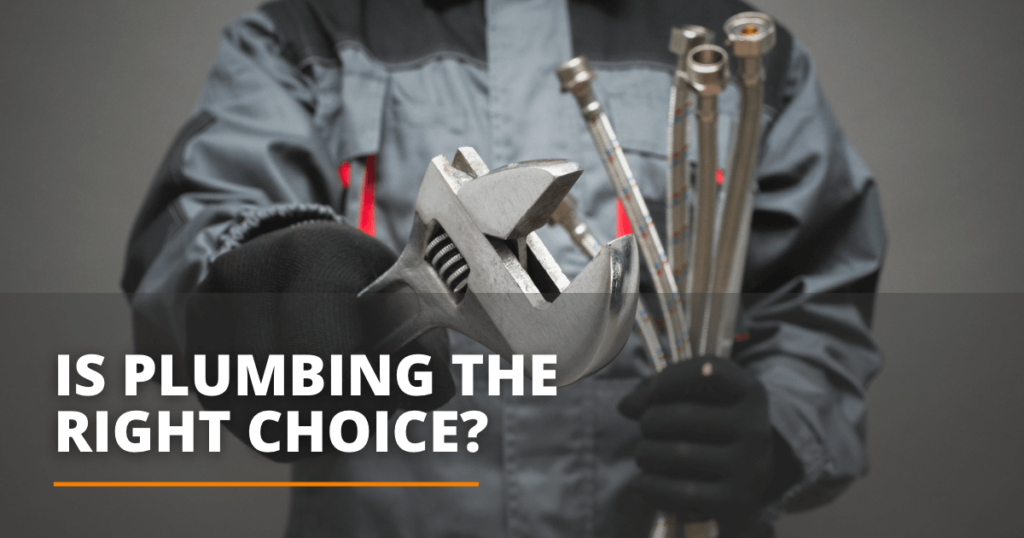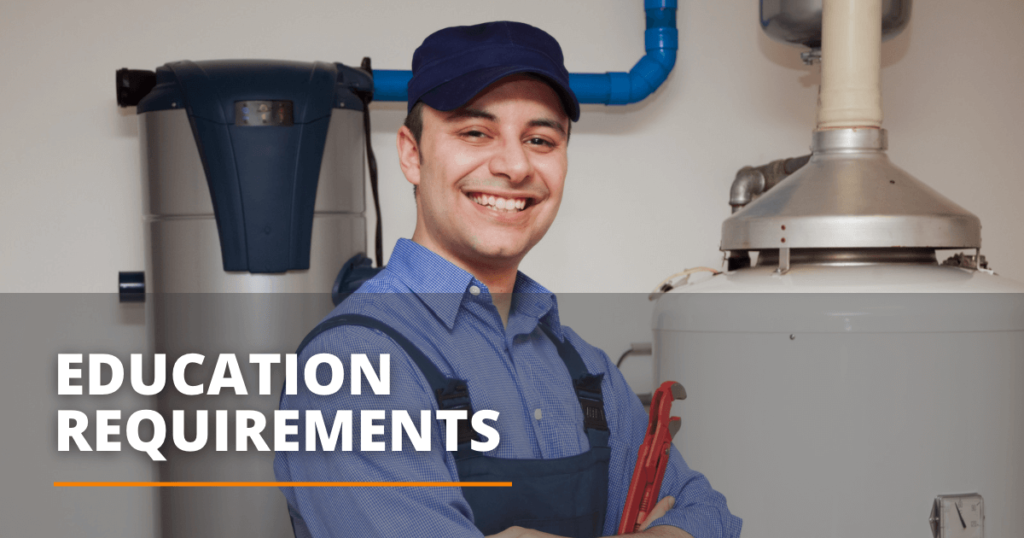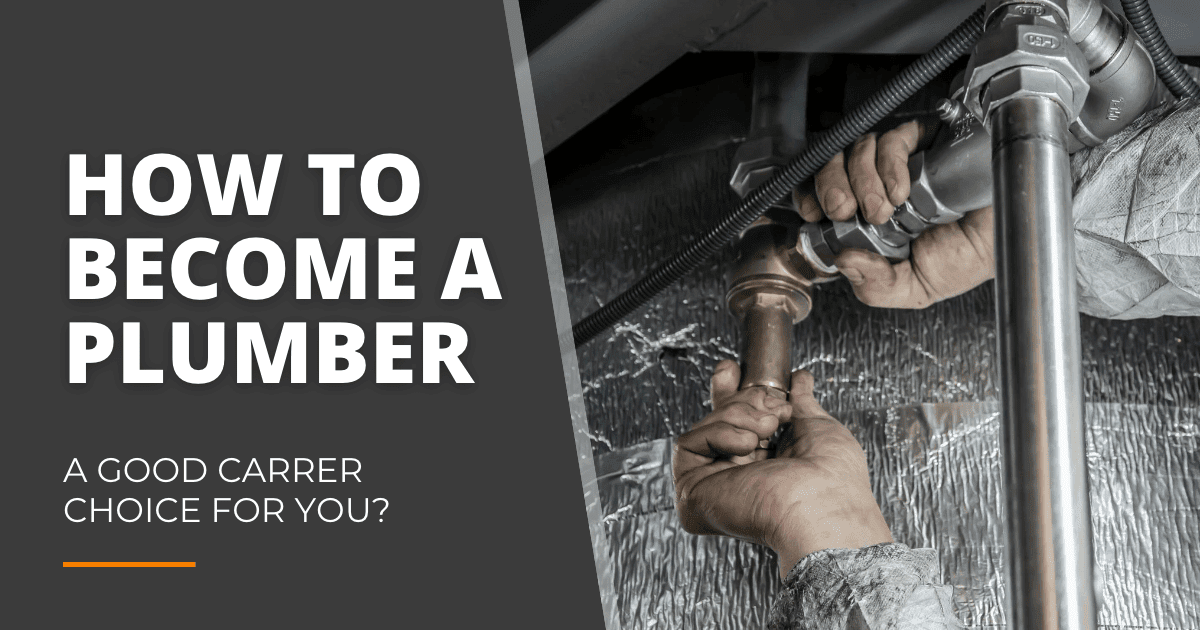How to Become a Plumber?
By My Service Depot on Tuesday, January 3, 2023The Plumbing Industry is Rapidly Growing, Learn How to Get Licensed
With the plumbing industry rapidly growing, becoming a plumber is a great way to secure a job with good pay and benefits.
If you’re interested in working with your hands and solving problems, a career in plumbing might be a good fit for you. Plumbers are responsible for installing and repairing pipes and fixtures in homes and businesses, such as toilets and sinks. They also install sewer, heating, and cooling systems.
Many people choose plumbing as a career because it offers good job security and the potential for high earnings. Most plumbers work full time, and many work more than 40 hours per week. They often work evenings and weekends to respond to emergencies. Some plumbers are self-employed and work independently.
If you’re considering a career in plumbing, you might have questioned whether it’s a good fit for you and the steps to becoming a plumber. Here’s what you need to know about the job to help you decide.
Is Plumbing a Good Career Choice for You?

A career in plumbing can be a good choice for you if you enjoy working with your hands, have good problem-solving and communication skills, and can follow instructions and pay attention to detail.
What Does a Plumber Do?
Most plumbers work in the construction industry, though some may work in homes or the maintenance department of a factory or other commercial facility. Plumbers install and repair pipes and fixtures, such as toilets, sinks, and tubs. They also install and repair plumbing fixtures such as dishwashers and water heaters.
Plumbers typically work full time, although some may work overtime or on call to respond to emergencies. Plumbers need to be able to work in uncomfortable or cramped positions, and they often have to lift heavy objects. They also need to be able to work in a variety of weather conditions.
How Much Does a Plumber Make?
The average salary for a plumber in the United States ranges from $22,827 to about $78,069. However, plumbers’ incomes can vary greatly depending on several factors, such as their experience level, their geographical region, and the type of plumbing work they do. Some plumbers earn up to six-figure salaries.
What Is the Plumber’s Job Outlook?
The plumbing industry is a vital part of the American economy and was valued at $134 billion by the mid-point of 2022. While overall industry growth has slowed due to the pandemic and rising inflation, the demand for plumbing industry services is expected to grow by five percent in the next decade
Plus, the job market for plumbers remains strong. In the United States, the plumbing industry employed over 500,000 plumbers in the US in 2022. The employment rate has also increased by 2.2% on average over the past five years.
How Long Does It Take To Become a Plumber?
Generally, it takes an average of four to five years of schooling and apprenticeship to become a licensed plumber. This length of time can vary depending on several factors, including your previous work experience, the type of training you undergo, and the licensing requirements in your state. Compared to other trade professions, becoming a plumber requires about the median amount of time for education and experience.
How to Become a Plumber
You can become a plumber by following these four steps.
- Obtain a high school diploma or equivalent. Although not required, completing a vocational program or taking classes in plumbing can give you a leg up in the job market.
- Complete an apprenticeship program. Apprenticeship programs typically last four to five years and combine on-the-job training with classroom instruction.
- Get a plumbing license. In some states, plumbers must obtain a license before practicing their trade. To get licensed, plumbers must pass an exam that tests their knowledge of plumbing code and safety.
- Join a professional organization. Joining a professional organization, such as the American Society of Plumbing Engineers or the Plumbing-Heating-Cooling Contractors Association, can provide you with networking opportunities, resources and continued education opportunities.
Plumber Education Requirements

To become a plumber in the United States, you must complete an accredited training program. Attending an accredited school will ensure that you receive the highest quality education and that future employers will recognize your degree.
Many different training programs are available, but most plumbers complete a four-year apprenticeship with 2,000 hours of on-the-job training. During your apprenticeship, you will learn the basics of plumbing and work under the supervision of a licensed plumber.
Once you have completed your apprenticeship, you’ll need to take the licensure exam to become a licensed plumber in your state. Some states require a master plumber’s license, which you can obtain after completing a certain number of years on the job and passing a written and practical exam.
How Much Does Plumbing School Cost?
The cost of plumbing school in the United States varies depending on the school type and the program’s length.
- Online training costs between $800 to $1000.
- Apprenticeship programs, which are the most common type of plumbing school, typically last four to five years and cost between a total of $4,000 and $5,000 per year.
- Certificate and diploma programs at technical and trade schools usually last one or two years and cost between $1,250-$3,000
- Associate’s degree programs at community colleges and four-year universities typically last two years and cost between $3,000 and $23,000.
- Additional costs include books and tools for about $2000 and licensing fees that may cost close to $300.
How Affordable Are Plumbing Schools Compared to a Traditional University?
The cost of tuition for plumbing schools can vary widely but is typically much less expensive than a traditional university. The average cost for a student living on-campus and attending a four-year in-state university ranges from approximately $25,707 per year or $102,828 over four years.
Many plumbing schools offer financial aid and scholarships to help offset the cost of tuition. Additionally, many employers will reimburse employees for the cost of education if they complete a plumbing program.
Online Plumbing Training vs. Plumbing School In-Person
Online plumbing training offers the following advantages over attending plumbing school in person.
- More affordable than in-person plumbing school
- Completed at your own pace rather than attending class on a set schedule
- Greater flexibility in terms of learning materials and methods
However, an in-person plumbing school may better suit you if you prefer the following learning environment.
- Hands-on approach to learning
- Structured learning environment with set class times and a syllabus
- The chance to build relationships with your classmates and instructors
3 Highly Ranked Accredited Plumbing Schools

To get an idea of the type of plumbing schools you may be interested in, here are three highly ranked plumbing schools: an online school, a technical school, and a college of technology.
Penn Foster Career School
Comprehensive plumbing course
Type of school: Online
Certification: Plumbing career diploma
Cost: $964
Course length: 8 to 12 months
Accreditation: DEAC, IACET, MSA-CESS
Apex Technical School
Plumbing and pipefitting program
Type of school: Private for-profit
Location: Long Island, New York
Cost: $15,155
Length: 900 hours of training/part-time or full-time basis
Ivy Tech Community College
Associate degree in plumbing and water supply
Type of school: College of technology
Location: Indianapolis, IN
Cost: $4,637 In-state tuition, $8,927 out-of-state tuition
Length: 2-year program
The Plumber Career Path

Your career path as a plumber will follow these steps.
- Get a high school diploma or a GED.
- Complete an apprenticeship over four years and combine on-the-job training with classroom instruction. Pay rates range from $12 to $19 an hour.
- Receive a journeyman license to work independently. Depending on your employer, hourly wages vary from $17 to $43.
- Earn a master plumber license to work in leadership roles as a supervisor, service manager, or general manager. Master plumbers receive between $36 and $67 an hour.
- Or you may choose to start your own business.
How to Become a Licensed Plumber
The three levels of plumbing licenses include certified plumber, journeyman plumber, and master plumber. To become a licensed plumber, start by completing an accredited training program. Once you have completed your training, you must take a state-approved exam. After passing your exam, you will need to apply for a license from your state.
Do the plumbing certification requirements differ by state?
Requirements for plumbing certification can vary considerably from one state to another. Some states have no certification requirements for plumbers. In other states, requirements for certification may differ depending on the type of plumbing work performed.
To become a certified plumber, check with the licensing board where you wish to practice to learn the requirements and the procedures for taking an exam to receive your certification.
Field Service Software by Smart Service for Plumbers

When you become a plumber, or if you’re already in the plumbing industry, you should take advantage of field service software like Smart Service. Field service software, offered by Smart Service, helps businesses manage their everyday operations by eliminating the need for physical paperwork and ledgers. This software streamlines the work process for scheduling appointments, dispatch, invoicing, and customer management. Try a free software demo today!


